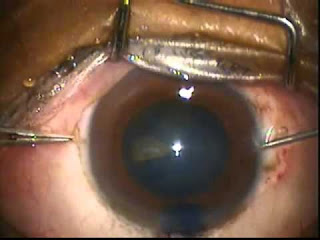Traditionally, the surgeons were opening the capsule of the
lens of an eye to treat cataract and they used to extract the lens and the
capsule to prevent any possible inflammation after surgery due to leftover
parts.
Modern cataract surgeries are no longer extracting the entire
capsule with the introduction of a modern technique called continuous curvilinear capsulorhexis (CCC). Modern day
surgeons are able to remove the entire residual left after the surgery with
this technique. Surgeons used to remove the affected layer along with the
capsule in the past. With the introduction of Intraocular Lens (IOL), the
ophthalmologist is able to remove the entire affected layer while retaining the
capsule. The implanted lens however, may vary from surgeon to surgeon and
depending upon the type of IOL implanted; there will be a 360◦ optic overlap.
While excessive overlap may cause a postoperative hyperopic shift, incomplete
overlap is associated with IOL tilt, causing lack of clarity in the vision.
According to a study called Impact of Capsulorhexis Morphology on the Predictability of Intraocular Lens Power Calculations, Jonathan M Davidorf argues that compared to acceptably shaped CCCs, a perfectly centered, perfectly round anterior capsulotomy will improve the predictability of the effective lens position. The study reviewed 175 random cataract surgery videos (acrylic IOL) to assess the impact of capsulorhexis (CCC) morphology on predictability of intraocular lens (IOL) calculations. The study found no significant difference in variance and concludes that there appears to be no relationship between CCC morphology and IOL calculation predictability.


I wanted to thank you for this excellent read!! I definitely loved every little bit of it. I have you bookmarked your site to check out the new stuff you post. Начальная осложненная катаракта
ReplyDeleteThanks for posting about Eye and Cataract Surgery. it's a good thing to inform other people about it.
ReplyDelete